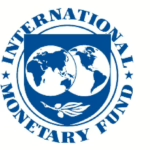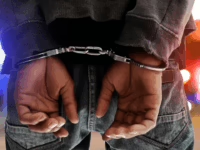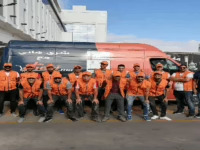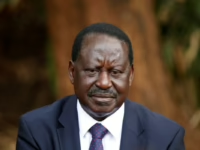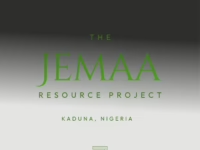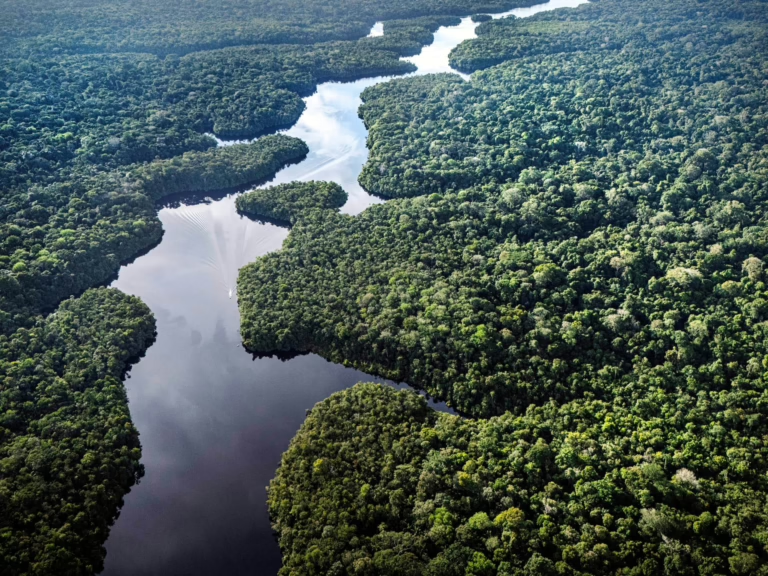JBS, the world’s leading meat producer, is reportedly linked to illegal deforestation, land seizures, and human rights violations in the Brazilian Amazon by sourcing cattle from ranches operating within protected territories, reveals a recent investigation by Human Rights Watch.
Released on Wednesday, the nonprofit’s comprehensive 86-page report centers on Pará, the Brazilian state set to host the upcoming United Nations COP30 climate summit.
The investigation exposes a critical weakness in JBS’s supply chain management: the company does not monitor cattle sourced indirectly through third-party suppliers.
Researchers uncovered a sophisticated “laundering” process where cattle raised on illegally cleared land are shuffled through multiple transfers, obscuring their true origin before entering JBS’s supply network.
This loophole means JBS cannot confidently assert that its beef and leather products are free from links to deforestation and associated abuses.
Luciana Téllez, a senior environmental researcher at Human Rights Watch, warns that without enhanced livestock traceability, JBS remains incapable of eliminating illegal ranches from its supply chain.
“What JBS doesn’t know could implicate them in financing unlawful deforestation,” Téllez explained.
“While we cannot definitively confirm that cattle purchased directly by JBS originate from illegal ranches, neither can the company,” she told Al Jazeera. “This uncertainty is problematic because they bear responsibility for their procurement.”
Pará: A Crucial Frontline in Amazon Deforestation
This report adds to mounting evidence on agriculture’s devastating impact on the Amazon rainforest.
Globally, the expansion of ranches and agricultural land is the foremost driver of tropical deforestation.
The Amazon is no exception, with cattle ranching identified as a leading cause behind the destruction of its rich and diverse ecosystems.
Pará, located in northern Brazil, plays a pivotal role in combating deforestation, consistently recording the highest deforestation rates in the Amazon since 2016.
In 2024 alone, Pará lost 17,195 square kilometers (6,639 square miles) of forest, marking a staggering 421% increase compared to the previous year, according to Human Rights Watch.
The state also experiences Brazil’s second-highest number of land disputes, as illegal ranchers, farmers, and criminal groups encroach on protected lands.
These invasions have had catastrophic effects on Indigenous and traditional communities, destroying crops, burning forests, and displacing residents.
Some community members who have spoken out against these land grabs have faced threats, assaults, and even fatal violence.
Despite federal laws prohibiting such activities, some land grabbers have fraudulently registered protected rainforest as private property.
The report documents incursions into two protected zones: the Cachoeira Seca Indigenous territory and the Terra Nossa sustainable development reserve.
“The intimidation and violence by land grabbers in Terra Nossa is deeply alarming, and the impunity they enjoy is shocking,” Téllez told Al Jazeera.
Human Rights Watch found that Pará’s state animal health agency, Adepará, had registered ranches within these protected areas and authorized cattle transport in and out of them.
Adepará reportedly stated that environmental criteria were not traditionally considered when approving livestock movements.
With the agency’s authorization, cattle raised illegally inside protected forests were moved to other ranches, eventually reaching major slaughterhouses, including those operated by JBS.
Each transfer further masked the cattle’s illicit origins, effectively “laundering” them into the legal meat market.
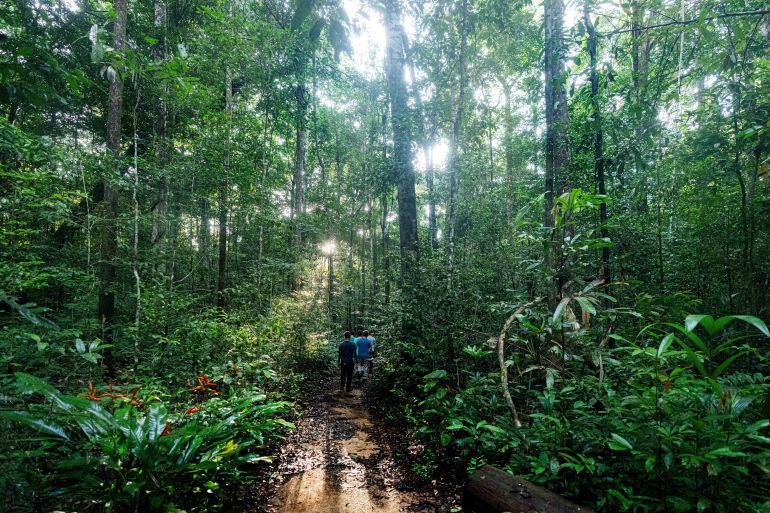
Challenges in Livestock Traceability
Human Rights Watch points to Brazil’s inadequate livestock tracking system as a core issue.
Rather than maintaining detailed records for individual animals, Brazil relies on “animal transit permits” (Guias de Trânsito Animal or GTAs) that document bulk shipments, including the number, sex, and age of cattle in a group.
This lack of individual animal tracking makes it nearly impossible to trace cattle back to their original ranches.
In a recent filing with the U.S. Securities and Exchange Commission, JBS acknowledged these traceability gaps within the GTA system.
“Consequently, there is no guarantee that monitoring procedures can fully ensure compliance with applicable laws regarding the origin of any cattle,” the company stated.
JBS has pledged to require suppliers to disclose their own suppliers by 2026, but Human Rights Watch questions how this will be verified or enforced.
“The most effective solution would be for the federal government to implement a nationwide cattle traceability system,” Téllez emphasized. “While progress is underway, it is moving at a frustratingly slow pace.”
JBS previously committed to similar transparency in 2009 by signing the G4 Cattle Agreement with Greenpeace, promising to identify all indirect suppliers by 2011-a deadline it failed to meet.
“It is unacceptable that companies like JBS have repeatedly failed to honor their commitments,” said Cristiane Mazzetti, Greenpeace Brazil’s forest campaign coordinator. “Governments must now step in with stronger regulations, as voluntary corporate pledges alone won’t suffice.”
JBS did not respond to requests for comment before publication.
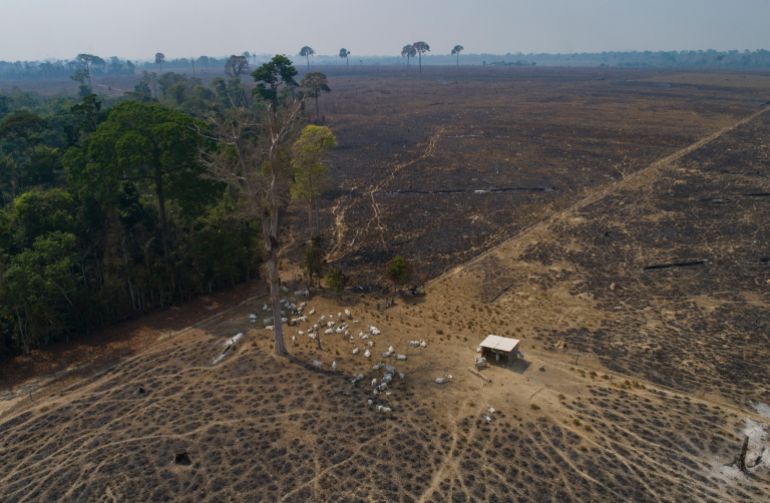
Slow Progress in Regulation and Reform
Some regulatory advancements are emerging. In 2023, Pará’s governor issued a decree mandating full traceability of all animal movements within the state by the end of 2026.
At the federal level, Brazil’s Ministry of Agriculture announced in December 2024 that all states must implement livestock tracking systems by 2032.
However, Human Rights Watch warns that these timelines are insufficiently urgent, potentially allowing illegal ranching to continue unchecked for years.
Experts and advocacy groups urge immediate action, including making GTA data publicly accessible to enable authorities to detect fraudulent cattle movements and trace animals back to illegal operations.
“Companies face traceability challenges partly because they lack access to comprehensive public data on the production chain,” explained Lisandro Inakake, an agronomist with the Brazilian environmental NGO Imaflora.
He added that the absence of universal market standards covering all company operations further complicates the issue.
While Human Rights Watch calls on JBS to voluntarily begin tracking cattle throughout their lifecycle, Mazzetti from Greenpeace insists that stronger measures are essential to halt deforestation.
“The era of empty promises must end,” she stated. “Companies need to be held accountable for the environmental and social damage caused by their supply chains in the Amazon and beyond.”



